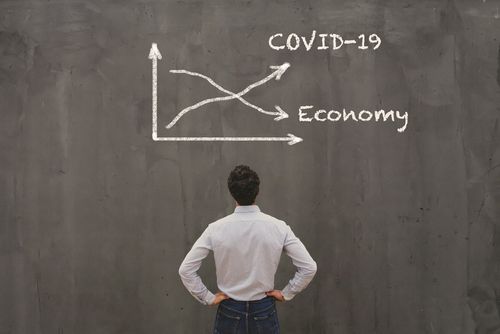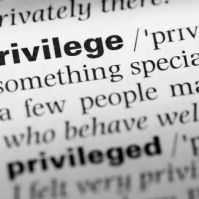 One of the hallmarks of the U.S. market economy is the push and pull between supply and demand. In the free market, consumers are meant to drive production based on their purchasing habits. Government involvement is often limited to protecting private corporate interests to give business owners freedom to respond to the market demands with relatively few parameters or restrictions.
One of the hallmarks of the U.S. market economy is the push and pull between supply and demand. In the free market, consumers are meant to drive production based on their purchasing habits. Government involvement is often limited to protecting private corporate interests to give business owners freedom to respond to the market demands with relatively few parameters or restrictions.
The COVID-19 pandemic reveals some of the limits of an economy that does not take social issues into account. Furthermore, concern about the carbon footprint of production has led many consumers to question how business owners and decision-makers are addressing the problem. Biden's American Families Plan and American Jobs Plan seem to speak to some of these concerns, but many economists speculate that it may be time to more fully embrace a system that reflects the core values of the workforce as standard operating practice.
Ecological Balance
A new economy that allows human ingenuity and nature preservation to coexist is one of the cornerstones of Kate Raworth's "Doughnut Economics." When corporations value production over environmental sustainability, it has many negative effects, such as the pollution of air and water, rapid depletion of natural resources and others that affect climate change. Organizations can create ecologically responsible policies and procedures to be good stewards of the earth.
Single-use plastics are used in many products as well as their packaging. Companies such as Grove Collaborative are making a commitment to reduce or even eliminate their use of plastic in the upcoming years. Factory owners who seek ways to reduce emissions and safely discard runoff or chemical waste can also make a big difference. As a consumer, you can use your voice to encourage the companies you love to make better choices. You can send an email to express your concerns or vote with your dollar by shopping with companies whose practices correspond with your values.
Social Impact
A healthy economy starts with thriving cities. Many social programs and resources that are considered extras or perks in the current system fundamentally impact people's ability to find work and succeed on a consistent basis. Stable employment opportunities require a lot of behind-the-scenes support in various areas:
- Childcare
- Education
- Healthcare
- Transportation
- Racial and gender equity
- Food availability
- Justice
- Affordable housing
- Livable wages
A successful system is not one that simply generates jobs. It must also make having a job a workable reality. For example, it doesn't matter how many consistent hours an employer can offer if the pay is so low that employees cannot afford transportation to work or childcare while they are there. If employers are not held accountable for providing adequate compensation for what they are asking of their workers and the government offers very little hope for aid, it's no wonder that unemployment rates rise and more people than ever must have more than one job to survive. A national system that addresses workers' challenges and concerns is in order.
It starts, of course, with electing officials who have vision for a future where the needs of the American workforce are met with viable solutions. Every citizen has the right to choose representatives whose values and passions reflect their own. Creating a new economy that rewards regenerative businesses is the key to making gainful employment a right rather than just a privilege.
The core values of environmental and social sustainability are gaining prominence in the United States. Unless the free market adapts to incorporate these values, it is certain to ultimately fail. As more employers recognize the necessity of not just encouraging work-life balance but also enriching life through work, the basic structure of their companies is likely to change for the better.



